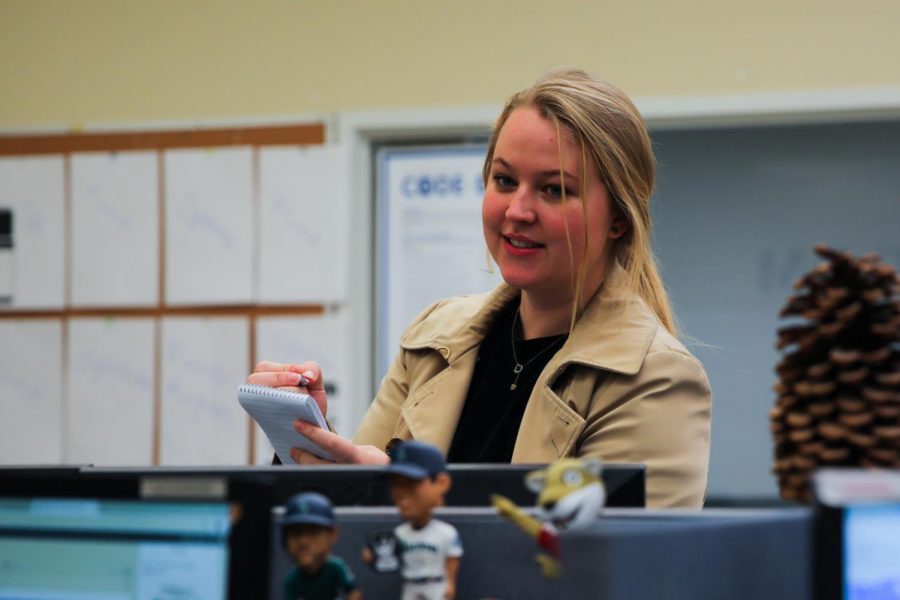Teach respect for women in early education
Objectification remains persistent issue in all kinds of environments; begin gender education at younger ages
BENJAMIN MICHAELIS | EVERGREEN PHOTO ILLISTRATION
Both sexes need to confront the issue of stifling social standards which force people to fill outdated, misogynistic models of society.
January 17, 2019
Women have been objectified for centuries. To this day objectification persists throughout our society, detrimentally affecting women’s health and social status.
When men see only certain parts of women, they hold them to a set standard. These women then start to uphold that standard, consciously or otherwise.
Social interactions involving this behavior tend to lead the victim toward trends with greater mental health risk and negative psychological outcomes, like body-shaming.
Self-objectification is when we view ourselves as objects. It’s majorly a reflection of how we feel about our bodies and how we see ourselves on the outside.
There are psychological consequences to this, sometimes so severe they lead to mental health problems like eating disorders, depression and sexual dysfunction, according to a study by the American Psychology Association.
By educating both men and women about objectification and how to recognize its different presentations, the end to this cultural practice comes closer to reality.
“Ways which bodies and identities are organized … it is as much about implicit behavior and power as it is about overt behavior,” said Kayley DeLong, program assistant at the WSU Women*s Center.
Anyone can say they want change, but it takes strong-minded people to execute that change. In this case, it means teaching against objectifying behavior and standing up for those who fall victim to this behavior.
If we instill the idea of respecting women early on, it could put an end to situations where men feel it is okay to objectify us.
Instead of favoring a male’s perspective, we need to embed women’s perspectives rather than their bodies into society. In early sexual education programs, we should include information on how to treat women on social media and other public platforms where sexual objectification prevails the most.
There are different levels of perceived sexual hierarchy and it is important to know they’re driven by power and privilege, not only on WSU’s campus, but everywhere.
To change, we need to realize its presence on campus, the classroom, bars, fraternity parties and everywhere else.
“It happens here,” DeLong said. “[I’ve] witnessed [it] as staff and student.”
This is the main reason why places like the Women*s Center on our campus exist: to give women or anybody else a familiar and comfortable place to belong to.
“Centers like this wouldn’t exist if it weren’t for behaviors like sexual objectification,” Delong said.
The Women*s Center on campus offers more than just a support group of qualified officials, it gives women a place to feel empowered.
Empowering women on campus and addressing this issue will create a better environment for everyone to feel safe and secure within our classrooms and other facilities around WSU.








